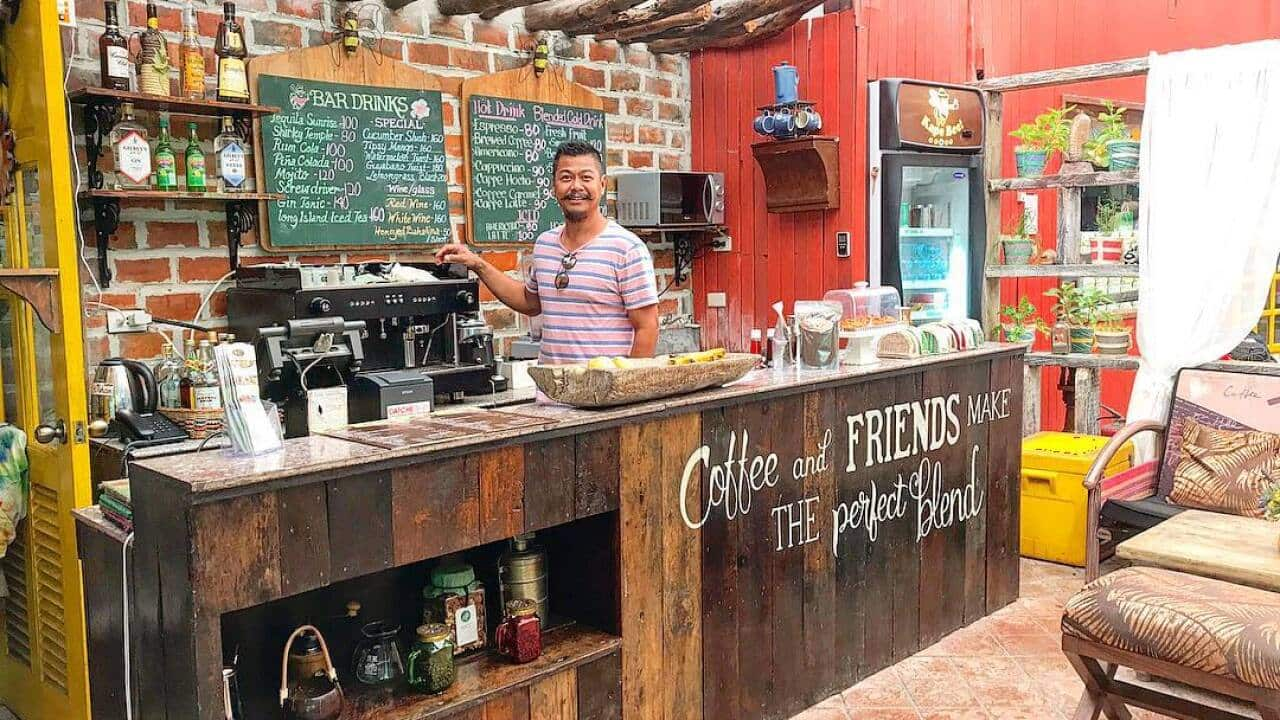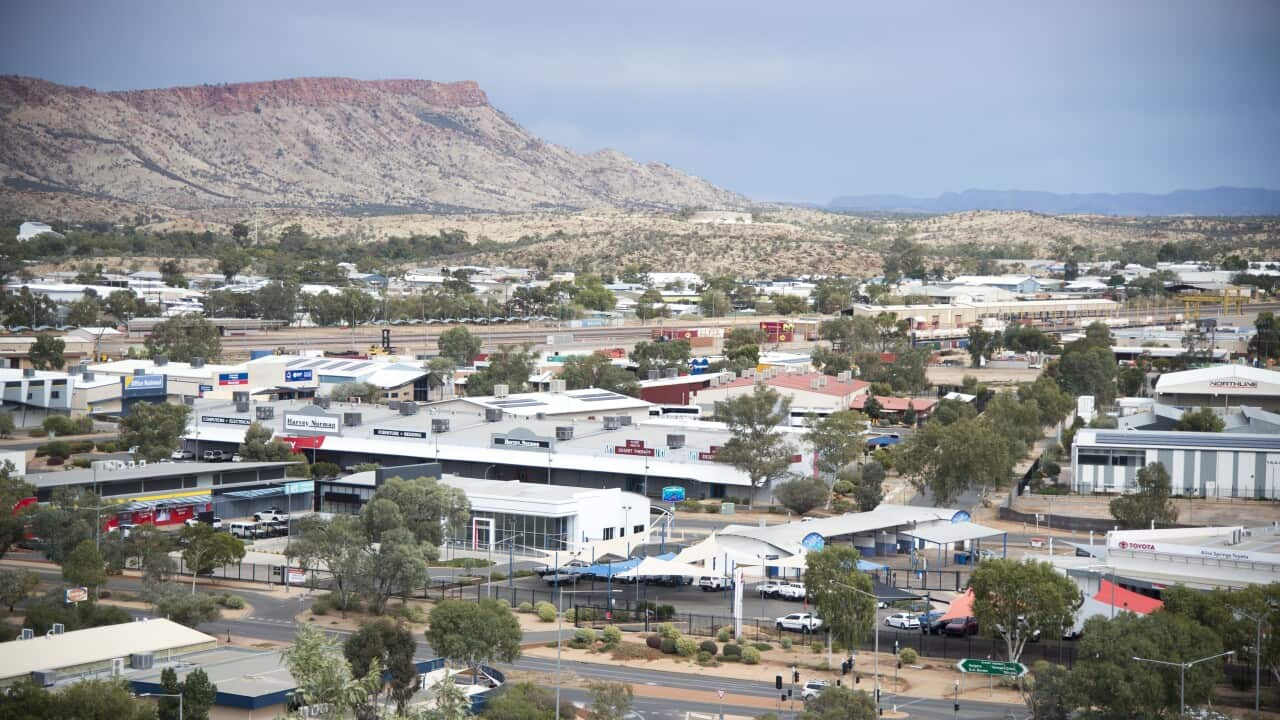A week after the Queensland government implemented its state lockdown, Ian Abadiano’s café in central Brisbane, Coffee Mentality, suffered a massive 80% loss in sales. Apart from his brick and mortar café business, he also ran a coffee van at a weekend farmers market which he had to discontinue.
But even in the current crisis, he found an opportunity to extend his cafe business to online retail while developing a working formula to maintain personalised and safe contact with old and new clients.
“We found the time and opportunity to finally launch our online shop. It is doing much better than the actual café.”
Mr Abadiano has not just benefitted from experience; he is also blessed with foresight. In 2016, he started growing a dozen coffee trees in his backyard in Sunnybank Hills, just 20 minutes’ drive from his café near the Brisbane CBD.
In November last year, his cafe won a Silver Award in the Golden Bean Roasting Competition with the very beans he harvested from his own backyard. Over 1,200 roasters from across Australia and New Zealand competed in various categories. “The category was for local Australian-grown only. I wanted to know where I stood in relation to other local growers in Australia,” he said.
“The category was for local Australian-grown only. I wanted to know where I stood in relation to other local growers in Australia,” he said.

Source: Coffee Mentality Facebook page
Australia is not a major coffee-growing country. According to AgriFutures Australia, it is estimated there are only ‘around fifty (50) commercial coffee growers in Australia, producing coffee on a total of 300-350 hectares’. In New South Wales and southeast Queensland, there are 40 growers producing coffee on 150 hectares. In north Queensland alone, coffee is grown on 175 hectares by seven growers.
A report published by research company Statista in November 2019, four months before the lockdown, said ‘around 23% of all coffee orders’ in Australia were for take-away. This ranks Australia fourth just behind Japan, the United States, and Canada in coffee take-away sales alone. According to the company, Australia imported close to ‘1.6 million 60-kilogram bags in the financial year 2019 compared to 1.41 million and 1.54 million 60-kilogram bags imported in the financial years 2017 and 2018 respectively.
While Mr Abadiano is confident of the reliability of his green beans supplier, he reckons there will be major adjustments in the overall supply chain when things ‘go back to normal’.
“Definitely, there will be changes. A lot more dealings with local businesses around our area, around the city, getting supplies from small businesses instead of international companies. I think people around the area will be supportive of that, so we want to take advantage of that.”
With the growing concern on food security across the world brought about by the COVID-19 crisis, he is championing stronger support for local food production and sourcing more than ever.
Food Security, A Trust Game
Against government advice, people emptied shelves of basic commodities like rice, pasta, and canned goods fearing that supplies would run out with many businesses closing. Addressing concerns on local supplies, the Department of Agriculture, Water and Environment said on its website that ‘despite temporary shortages of some food items in supermarkets caused by an unexpected surge in demand’ the country ‘does not have a food security problem’.
In Asia, according to Samarendu Mohanty, agricultural economist and Regional Director for Asia at the International Potato Center (CIP), the recent closure of restaurants and food services has significantly reduced the demand for processed potato products.
The biggest casualty of this he said was the frozen foods business in western countries. Mr Mohanty explained to SBS Filipino that it is no surprise that people have turned to consume potatoes during the pandemic since it also has a longer shelf life compared to other vegetables.
“Even in the traditionally non-potato-consuming southern states of India, potato has become popular,” Mr Mohanty added.
Back in Brisbane, Robert Pekin’s short-chain, food distribution business is becoming busier each year with people wanting a reliable source of fresh produce. His social enterprise Food Connect operates a shed in Salisbury, just 15 minutes from the Brisbane CBD. Mr Pekin works with a network of local farmers and producers all within a four-hour drive radius of Brisbane. Food Connect’s average food mileage per week ranges from 130 kms to 167 kms.
Early last year, he saw increases in his fresh produce sales as supermarkets grappled with fresh food shortages caused by floods and bushfires around the country. It is hardly surprising that his sales ‘more than doubled’ in the last 4 – 5 weeks.
“The average spend went up by $10 per person and the home delivery went up by five times. Our farmers have had no trouble keeping up with demand. We didn’t have many issues with supply during both the drought and fires or the crisis as most of our farmers are regenerative not extractive,” Mr Pekin told SBS Filipino in a recent interview.
Emergency Service to Emerging Business
While Mr Pekin is glad that his business is able to provide a reliable alternative during these times, he hopes that his business ethos will help normalise low food mile staples on every table and reduce social isolation ‘through closer connections between growers, eaters, and local community’.
“We do think that there will be an increasing interest in getting food more locally from both a self-sufficiency perspective and health. Our sales trends have been consistent for the past three weeks after the initial burst of quadrupled sales five weeks ago. So, we hope that continues,” Mr Pekin said.
With lockdown restrictions set to ease in Queensland on May 2, Mr Abadiano is looking forward to re-opening his coffee van at the markets in the next weeks. He believes that positive outcomes percolate from dark times such as this pandemic and that businesses will come out stronger and compassionate from the experience.
"The pandemic has tested every level of business. Relationships will grow between [business and suppliers]. Employers [will value] the wellbeing of their employees, customers, and not just the business. Involved customers would want to know where their coffee comes from," he said.
ALSO READ





